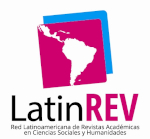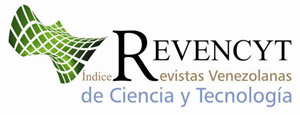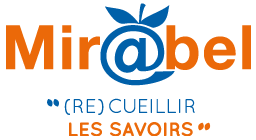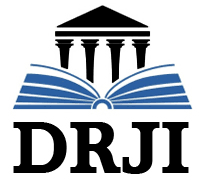Coexistence as a climate enhancer in the classroom
A phenomenological vision
Keywords:
Empowering coexistence, classroom climate, phenomenological visionAbstract
The purpose of this article was to generate an approach based on the perceptions and beliefs about coexistence as an enhancer of the climate in the classroom that teachers and heads of the Libertador Department School have. The Ontological Level was through the intersubjectivity of a social reality constituted by the seven social actors chosen with specific parameters and interpreted by the author. Epistemologically, it is based on Social Constructivism. The Phenomenological-Hermeneutical Method made it possible to capture reality as a holistic whole, since it seeks, through the knowledge of social actors, to build “that experiential reality” of the phenomenon under study. The in-depth interview supports the scientificity of said research, making triangulation possible, which originated the emerging categories: Human Development, Attitude, Self-esteem, Effective Communication and values, with their respective subcategories, where the findings showed that the emerging categories mentioned must be present for the articulation between educational entities, highlighting the importance of raising awareness in the environment in favor of educational quality and standard of living; that optimize the training and permanent updating of teachers to reaffirm the academic tasks, rights and knowledge around the conclusive reflective phenomenon in execution of the climate in the classroom.
Downloads
References
Álvarez, D. (26 de octubre 2019). 5 claves para fomentar una sana convivencia escolar. Grupo Educar. https://www.grupoeducar.cl/noticia/5-claves-fomentar-una-sana-convivencia-escolar/
Asamblea General de las Naciones Unidas. (1989). Convención Internacional de los Derecho del Niño.
Bronfenbrenner, U. (1987). La ecología del desarrollo humano. Experimentos en entornos naturales y diseñados. Barcelona: Paidós.
Camacho, N. (2016). La Convivencia en el Colectivo Escolar: Una Mirada desde la Gerencia Transcompleja. Tesis Doctoral Universidad Fermín Toro, Venezuela.
Fernández, I. (2008). Prevención de la violencia y resolución de conflictos: el clima escolar como factor de calidad. Narcea. Madrid.
Galeano, M. (2009). Diseño de proyectos en la investigación cualitativa. Colombia. Universidad EAFIT.
Gutiérrez, L. (2017). Paradigmas cuantitativo y cualitativo en la investigación socio-educativa, proyecciones y reflexiones. PARADIGMA, 14(1y2), 7-25. http://revistaparadigma.online/ojs/index.php/paradigma/article/view/181
Hanushek, E. & Rivkin, S. (1997). Understanding the Twentieth-Century Growth in U.S. School Spending. The Journal of Human Resources, 32(1), 35–68. https://doi.org/10.2307/146240
Heidegger, M. (1974). El ser y el tiempo. México. Fondo de Cultura Económica.
Ibáñez, T. (2007). Psicología social construccionista. México. Universidad de Guadalajara.
Hernández, F. y Sancho, J. (2009). El clima escolar en los centros de secundaria: más allá de los tópicos. Madrid. Ministerio de Educación y Ciencia. Secretaria General Técnica.
Jares, X. (2006). Pedagogía de la convivencia. Barcelona. Grao.
Martínez, M. (2006). La orientación del clima de aula. Investigación sobre el desarrollo de una investigación. Tesis doctoral. Barcelona. Publicaciones de la Universidad Autónoma de Barcelona.
Martínez, M. (2007). La nueva ciencia: Su desafío, lógica y método. México. Trillas.
Martínez, M. (2008). Educación en valores: un ámbito necesario en la formación del profesorado. Infancia y Aprendizaje. Barcelona: Index.
Pérez, G. (2007). Modelos de Investigación cualitativa en Educación Social y Animación Sociocultural. Aplicaciones prácticas. Madrid. Narcea.
Ortega, P. Mínguez, R. y Saura, P. (2003). Conflicto en las aulas. Propuestas Educativas. Barcelona. Ariel Educación.
Osorio, F. (2019). El Método Fenomenológico: Aplicación de la Epojé al Sentido Absoluto de la Consciencia. Chile.
Ramírez, S. y Justicia F. (2006). El maltrato entre escolares y otras conductas-problema para la convivencia. Electronic Journal of Research in Educational Psychology, 4(2), 265-289. https://www.redalyc.org/pdf/2931/293122821007.pdf
Rivas, J. (2001). Organización y cultura del aula. Estudio de casos. Málaga. Secretariado de Publicaciones de la Universidad de Málaga.
Rodríguez, G., Gil, J. y García, E. (2010). Metodología de la investigación cualitativa. Málaga, España. Aljibe.
Sandoval, J. (2010). Construccionismo, conocimiento y realidad: Una lectura crítica desde la psicología social. Revista Mad, (23), 31-37. https://revistamad.uchile.cl/index.php/RMAD/article/view/13633/13902
Scheerens, J. y Bosker, R. (2007). The foundations of educational effectiveness. school safety. From Research to Practice. Mahwah. New Jersey: Lawrence Statistics.
Taylor y Bogdan. (2007). Introducción a los métodos cualitativos de investigación. Barcelona, España. Paidós.
Toledo, P. (2009). El Ambiente Universitario: estudio descriptivo y comparativo del Clima de Aula de la Universidad de Jaén. Tesis doctoral. Sevilla. Universidad de Sevilla.
Tuvilla, J. (2009). Convivencia escolar y resolución pacífica de conflictos. Sevilla.
Published
How to Cite
Issue
Section
License

This work is licensed under a Creative Commons Attribution-NonCommercial-ShareAlike 4.0 International License.





















